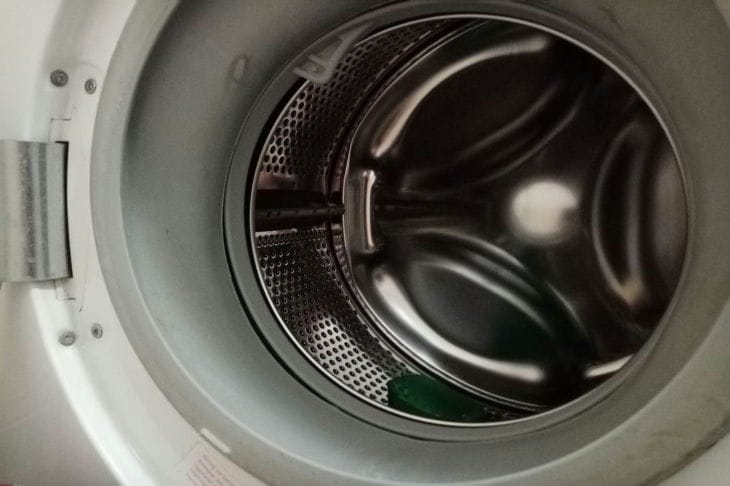- Cleaning the drum and door: the first step to freshness
- Using Vinegar and Baking Soda: Simple and Effective Remedies
- Airing and drying: preventing mold
- Cleaning the filter and detergent compartment: details you shouldn't forget
- Using special products: additional measures to combat odor
- Prevention and regular care: how to avoid future odors
How to get rid of unpleasant odor in the washing machine at home: effective methods and tips
An unpleasant smell in the washing machine can be a real problem for every home. It not only spoils clothes but also creates discomfort in the house.
The main causes of odor are the accumulation of detergent residues, mold and bacteria that multiply in a humid environment.
These problems often arise due to improper maintenance of the machine and the use of low-quality detergents.
Understanding the causes will help you effectively get rid of the odor and prevent it from occurring in the future.
Cleaning the drum and door: the first step to freshness
Regularly cleaning your washing machine drum and the rubber seal around the door is an important step in combating unpleasant odors.

The drum should be wiped with a damp cloth and a mild detergent, paying particular attention to corners and seams where dirt residues accumulate.
The rubber seal around the door is often a breeding ground for mold and bacteria. It should be thoroughly washed with vinegar or a special cleaning agent to remove all dirt.
Using Vinegar and Baking Soda: Simple and Effective Remedies
One of the most affordable and effective ways to eliminate odor in a washing machine is to use vinegar and baking soda.
Vinegar has strong antibacterial properties and helps remove limescale and mold.
To clean the machine, simply pour two cups of vinegar into the detergent compartment and run the machine through a full wash cycle at high temperature.
After that, you can add half a glass of soda to the drum and run the full cycle again. This combination will help get rid of the unpleasant smell and return the machine to freshness.
Airing and drying: preventing mold
One of the main causes of unpleasant odors is humidity inside the machine. To prevent mold and odor, leave the door and detergent compartment open after each wash so that they dry completely.
A damp environment is the perfect breeding ground for bacteria, so regularly airing and drying your machine is key to keeping it clean and fresh.
Cleaning the filter and detergent compartment: details you shouldn't forget
The washing machine filter and detergent compartment are often overlooked, although this is where dirt and soap residue accumulates, which can become a source of unpleasant odor.
The filter should be regularly cleaned of hair, lint and small objects that may remain in it after washing.
The detergent drawer should be removed periodically and washed with warm water and a brush to remove any detergent residue and prevent mold from forming.
Using special products: additional measures to combat odor
If conventional methods do not help to completely get rid of the smell, you can use special cleaning agents for washing machines.
These products contain strong antibacterial components that effectively fight mold and bacteria.
These products should be used according to the manufacturer's instructions, which usually involves running the machine through a full wash cycle with no laundry in it and adding the product to the detergent compartment.
Prevention and regular care: how to avoid future odors
Regular maintenance of your washing machine will help prevent unpleasant odors from occurring in the future.
It is important not only to periodically clean the drum, filter and detergent compartment, but also to monitor the quality of the detergents used.
Preference should be given to quality products that are completely soluble in water and leave no residue. It is also recommended to periodically run the machine on a full wash cycle without laundry with the addition of vinegar or a special cleaning agent for prevention.
Previously, we listed non-standard ways of using toothpaste.
